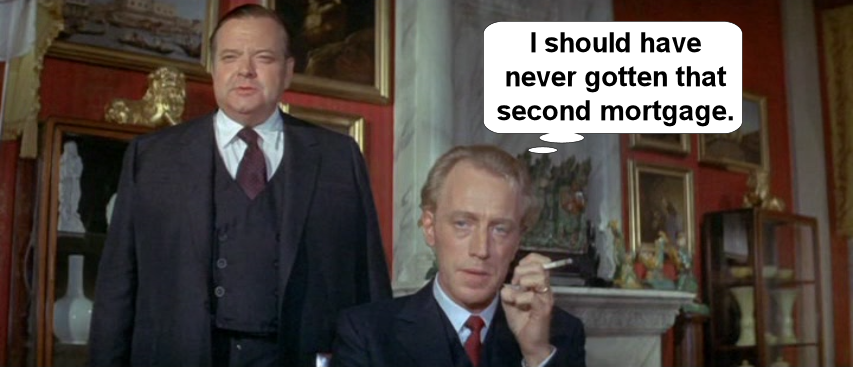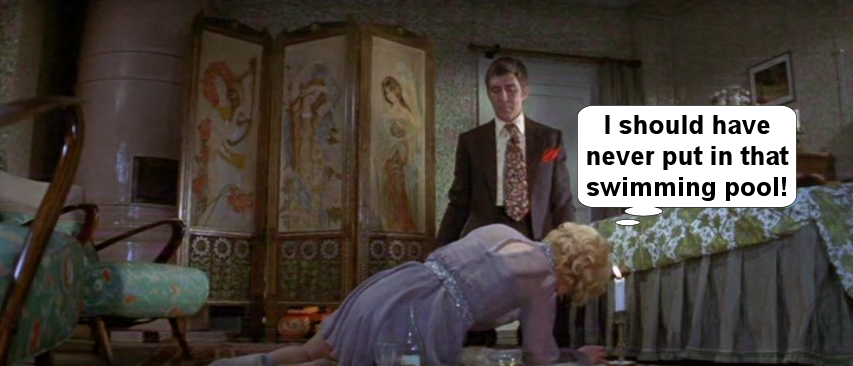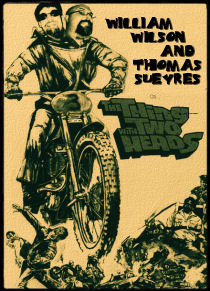 I don’t think I’ll get any argument if I say John Huston is a cinematic legend who has made some of the greatest American films of all time. It sort of goes without saying, even though I just said it. He has adapted works from some of the best writers in America such as Dashiell Hammett, Tennessee Williams and Herman Melville, to name a few. Hell, he made Stockton, CA look tragically romantic.
I don’t think I’ll get any argument if I say John Huston is a cinematic legend who has made some of the greatest American films of all time. It sort of goes without saying, even though I just said it. He has adapted works from some of the best writers in America such as Dashiell Hammett, Tennessee Williams and Herman Melville, to name a few. Hell, he made Stockton, CA look tragically romantic.
In the ‘60s due to government scandals, presidential assassinations and a rising interest in transparency, cold war thrillers flourished. Spurred by the international success of some guy named James Bond, the public was inundated with often intricately plotted examples of the genre. The gritty, twisty Michael Caine vehicle THE IPCRESS FILE (1965) became the high-water mark and the razor-sharp Patrick Magoohan series THE PRISONER (1967) turned it all upside-down.
So now we have John Huston, two years before the classics FAT CITY and THE LIFE AND TIMES OF JUDGE ROY BEAN, making a cold war thriller with the likes of Richard Boone, Nigel Green, Dean Jagger, George Sanders, Orson Welles and Max Von Sydow! This has to be a work of genius, right?
 A naval officer with a photographic memory, Ward (Patrick O'Neal), is abruptly discharged from service by unnamed people in the highest echelons of government power. As it turns out, he is essentially fired from his job so that an unnamed government organization (presumably the CIA) can offer him a job to go recruit some aging spies to impersonate Russians and infiltrate Moscow to retrieve The Kremlin Letter, a letter that people will kill to obtain. To help him in this mission, a grizzled spy (Boone) is brought in to show him the ropes. Of course this takes damn near an hour to roll out. Ward needs a lot of cajoling and once we get through that, he has to laconically overcome the resistance of his potential recruits.
A naval officer with a photographic memory, Ward (Patrick O'Neal), is abruptly discharged from service by unnamed people in the highest echelons of government power. As it turns out, he is essentially fired from his job so that an unnamed government organization (presumably the CIA) can offer him a job to go recruit some aging spies to impersonate Russians and infiltrate Moscow to retrieve The Kremlin Letter, a letter that people will kill to obtain. To help him in this mission, a grizzled spy (Boone) is brought in to show him the ropes. Of course this takes damn near an hour to roll out. Ward needs a lot of cajoling and once we get through that, he has to laconically overcome the resistance of his potential recruits.Why is this letter so important as to get some grumpy old men out of retirement? As we find out later in the film, it is a letter from the CIA promising assistance to Russia if China obtains nuclear weaponry. Uhhh, yeah. I guess the CIA no longer wants to help out the Reds, so they need to get it back. Why they can’t just tell the Russkies that they’ve changed their mind, or why they really need to send a bunch of old codgers in there instead of an elite team of navy seals is not explained. Unfortunately little else is either.
 Often I feel that the use of the phrase “muddled plot” is applied to pretty much anything above an 8th grade education by American critics and moviegoers. If the movie doesn’t spoon feed the audience every detail of the story, then it is branded a confusing mess and the screenwriter is clearly a hack. On the other hand, there are films like this in which the phrase is completely appropriate, though the screenwriters were Huston and his long-time assistant Gladys Hill, the pair of whom also wrote THE MAN WHO WOULD BE KING (1975). They must have honed their chops in the five years between the two because here scenes drag on and on with seemingly little point other than to give all of the cast a predetermine amount of screen time, with little focus on actual plot.
Often I feel that the use of the phrase “muddled plot” is applied to pretty much anything above an 8th grade education by American critics and moviegoers. If the movie doesn’t spoon feed the audience every detail of the story, then it is branded a confusing mess and the screenwriter is clearly a hack. On the other hand, there are films like this in which the phrase is completely appropriate, though the screenwriters were Huston and his long-time assistant Gladys Hill, the pair of whom also wrote THE MAN WHO WOULD BE KING (1975). They must have honed their chops in the five years between the two because here scenes drag on and on with seemingly little point other than to give all of the cast a predetermine amount of screen time, with little focus on actual plot. |
| Metaphor you say? |
The only meaty roles in the film are given to O'Neal and Boone who are fine, but not exactly riveting. O'Neal has a deadpan demeanor that exhibits all of the charisma of wall-paper paste, with women swooning at his feet in spite of sounding like he is in desperate need of a lozenge. Even Christian Bale is in less need of a Ricola. Boone is just plain miscast, playing the role as a good ol' southern uncle (even calling O'Neal "nephew") with a hint of menace, there's nothing about him that says "international operative". Granted this would might be a good cover in the real world, but it utterly fails to give this film the gritty, epic feel that it desperately wants to have. When I stumbled across this movie I thought to myself “how have I never seen this before?” Now I know.













0 Reactions:
Post a Comment
All comments are moderated because... you know, the internet.